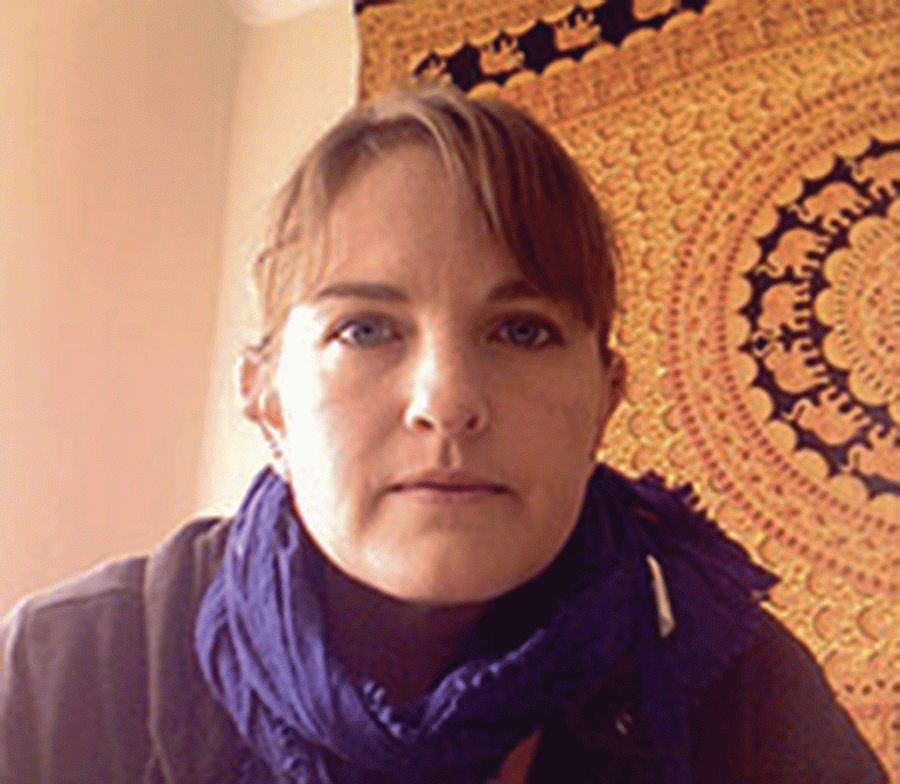Kimball Discusses Abortion in Latin America
Professor Tasha Kimball shares her research on women’s healthcare in Bolivia. Kimball studied gender, religion and labor in Bolivia as a Fulbright Scholar. Her research examines both Western medicine and Andean practices.
Colgate Visiting Assistant Professor of History Tasha Kimball discussed the history of abortion and unwanted pregnancies in Latin America on Thursday, October 26. Kimball has a Bachelor of Arts in Latin American studies from University of Washington and a doctorate in history from University of Pittsburgh. She calls herself primarily a “schol-activist,” a combination of a scholar and a social justice activist. Currently she is producing work about unwanted pregnancy, specifically in Bolivia.
The lecture took place in the Center for Women’s Studies, and was structured more as a conversation than a formal talk. First, Kimball discussed what led her to become interested in the topic of Bolivian reproductive care. She explained that after receiving her degree in Latin American studies, she obtained a Fulbright Grant to study gender, religion and tin mining labor in Bolivia. The indigenous miners in Bolivia experienced early death rates and unequal rights. There was also pervasive sexism and gender violence in the indigenous populations.
After returning from her research, Kimball came across a newspaper advertisement seeking a medical assistant while searching for a job in Seattle. She interviewed for it not knowing that it was actually an abortion clinic, and got the job. As she learned about the field and worked with the women, she became very interested in reproductive rights and “fell in love with it”.
Her experiences in Bolivia and her newfound interest in the areas of unwanted pregnancy and women’s health care combined to develop her most recent project.
The project examined a couple of different areas of women’s healthcare. The first area was Bolivian women’s experiences with abortion and unwanted pregnancies, mostly focusing on urban areas instead of rural. Kimball conducted oral interviews spanning experiences from 1955-2010. She also researched the history, demographics and policies of the country as well as the medical services offered by studying the medical records of three different medical facilities from 1955-2008. A big focus of Kimball’s research was the relationship between the adoption of Western medical practices and the continued use of traditional Andean healing practices. There is a larger struggle for dominance between the two methods in Bolivian medical societies. It is believed by some indigenous peoples in Bolivia that Western medicine standardizes and de-personalizes the childbirth experience, as opposed to Andean cultures, which use female midwives and herbal practices.
Recently, there has been more of a transition toward Western abortion practices, in contrast with Andean practices of ingesting or inserting herbs to induce a miscarriage. While abortion is still technically illegal in Bolivia,there has been increased access to some procedures and medicines.
A large factor in women’s limited reproductive healthcare access is fear of eugenics of indigenous people. This fear started in the 1960s when the Peace Corps in Bolivia faced allegations of inserting intrauterine devices into indigenous Bolivian women without their knowledge or consent. These allegations turned out to be factual, and the Peace Corps faced enormous backlash. The Bolivian government moved into a dictatorship and the country was split with controversy. Although the government was restored to a democracy in the 1980s, the country still has not recovered from the lasting fear of birth control and regulating pregnancies. This leftover fear bred a deep mistrust of birth control and Western women’s medicine in the country.
Many activists are working toward providing safe and reliable birth control and abortions for Bolivian women. While there is no observable political will to change the abortion laws in the country, Kimball is optimistic about the fact that policy changes, as well as the implementation of public health care, have made it easier and safer to get an illegal abortion. Kimball is hopeful that the climate of the country will eventually allow for legalized abortions.
Contact Zoe Frishberg at [email protected].




